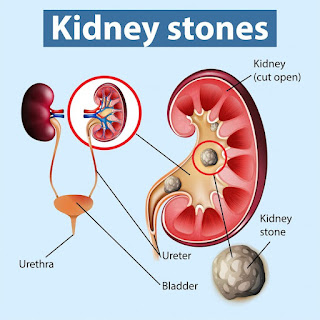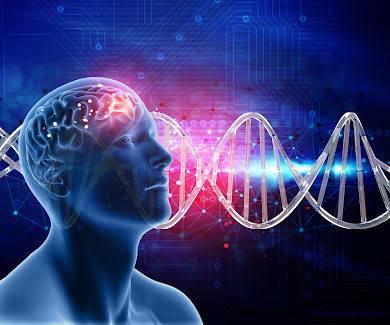A Comprehensive guide about Kidney Stones and Treatment option in Navi Mumbai
Introduction:
Kidney stones are small, hard mineral deposits that form in the kidneys and can cause excruciating pain when they pass through the urinary tract. This common condition affects millions of people worldwide and can lead to various complications if left untreated. In this blog, we will explore the causes, symptoms, diagnosis, prevention, and treatment options for kidney stones, providing valuable insights for those affected by this condition.
Causes of Kidney Stones:
Kidney stones can develop when certain substances in the urine, such as calcium, oxalate, and uric acid, become highly concentrated and crystallize. Several factors contribute to the formation of kidney stones, including:
- 1. Dehydration: Insufficient fluid intake can lead to concentrated urine, increasing the risk of stone formation.
- 2. Diet: Consuming foods high in oxalate, sodium, or animal protein can contribute to the formation of kidney stones.
- 3. Family History: Individuals with a family history of kidney stones are at a higher risk of developing them themselves.
- 4. Medical Conditions: Certain medical conditions, such as urinary tract infections, gout, and hyperparathyroidism, can increase the likelihood of kidney stone formation.
- 5. Lifestyle Factors: Sedentary lifestyle, obesity, and certain medications can also predispose individuals to kidney stone formation.
Symptoms of Kidney Stones: The symptoms of kidney stones can vary depending on the size and location of the stone. Common symptoms include:
- 1. Severe pain in the back, side, abdomen, or groin area
- 2. Painful urination
- 3. Blood in the urine (hematuria)
- 4. Frequent urination
- 5. Nausea and vomiting
- 6. Fever and chills (indicating an infection)
- If you experience any of these symptoms, it's essential to seek medical attention promptly for proper diagnosis and treatment.
Diagnosis and Treatment: Diagnosing kidney stones typically involves a combination of medical history, physical examination, and diagnostic tests, such as:
- 1. Imaging tests like X-rays, CT scans, or ultrasound to visualize the stones in the kidneys or urinary tract.
- 2. Urinalysis to detect blood, crystals, or signs of infection in the urine. 3. Treatment options for kidney stones may vary depending on the size and location of the stones, as well as the severity of symptoms.
- Common treatment approaches include:
- 1. Pain Management: Over-the-counter pain relievers and prescription medications may help alleviate pain associated with kidney stones.
- 2. Fluid Intake: Drinking plenty of water can help flush out small stones and prevent the formation of new ones.
- 3. Medications: Depending on the type of kidney stones, medications may be prescribed to help dissolve the stones or prevent their formation.
- 4. Extracorporeal Shock Wave Lithotripsy (ESWL): This non-invasive procedure uses shock waves to break up kidney stones into smaller pieces, making them easier to pass.
- 5. Ureteroscopy: In cases where stones are lodged in the ureter, a thin tube with a camera (ureteroscope) can be inserted to locate and remove the stones.
- 6. Surgical Intervention: In rare cases or for larger stones, surgical procedures such as percutaneous nephrolithotomy (PNL) may be necessary to remove the stones.
Prevention: Preventing kidney stones involves adopting healthy lifestyle habits and dietary modifications, including:
- 1. Drinking an adequate amount of water to maintain urine dilution.
- 2. Following a balanced diet low in sodium, oxalate, and animal protein.
- 3. Limiting consumption of foods high in oxalate, such as spinach, nuts, and chocolate.
- 4. Moderating intake of foods high in salt and sugar.
- 5. Avoid dehydration by staying hydrated, especially in hot weather or during vigorous exercise.
- 6. Seeking medical advice and treatment for underlying medical conditions that may predispose to kidney stone formation.
Conclusion: Kidney stones can be a painful and distressing condition, but with proper understanding, prevention, and treatment, individuals can manage this condition effectively and reduce the risk of recurrence. By adopting healthy lifestyle habits, staying hydrated, and seeking timely medical attention when symptoms arise, individuals can safeguard their kidney health and enjoy a better quality of life. If you suspect you have kidney stones or experience symptoms suggestive of this condition, consult a healthcare professional for prompt evaluation and management.
Thank you for visiting here,
Kharghar Multispeciality Hospital.
For more information:
Contact: +91 9594810508 | +91 9594910508
Location: The Crown, first & second floor, plot no 15,16, sector 15, Kharghar, next to D-mart and Reliance Digital, Kharghar, Navi Mumbai, Maharashtra 410210.



Comments
Post a Comment